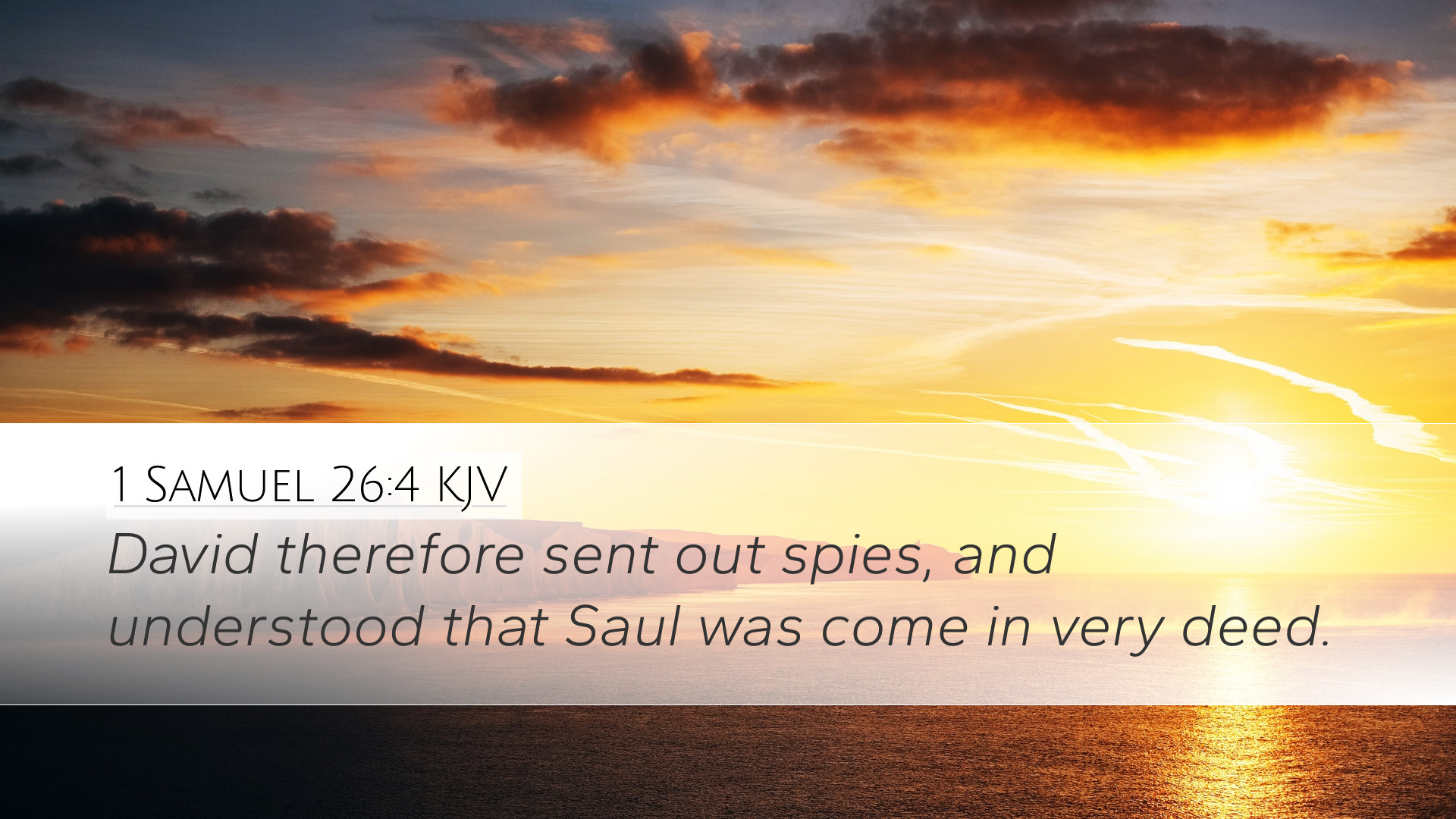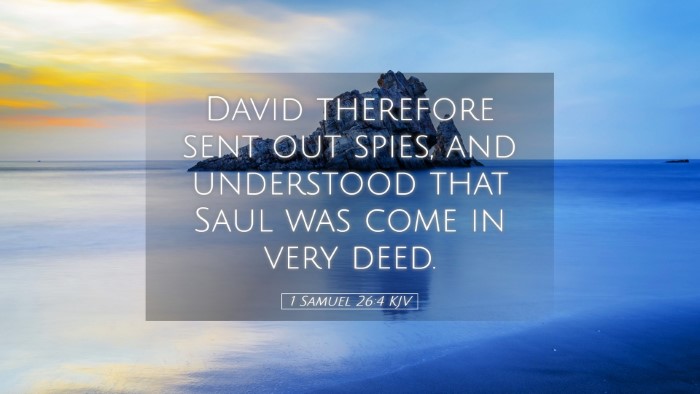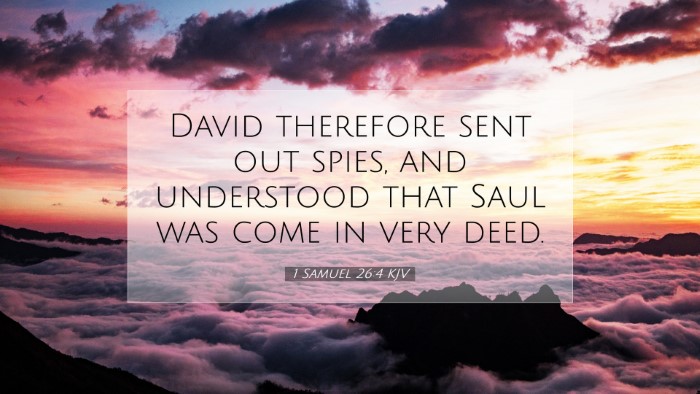Commentary on 1 Samuel 26:4
Verse Context: In 1 Samuel 26:4, we find David drawing information about Saul's movements as he seeks to evade him. This verse serves as a crucial turning point in David's struggle against King Saul, encapsulating a larger narrative of conflict, divine providence, and moral complexity.
Overview of the Passage
The verse reads: "David sent out spies, and understood that Saul was come in very deed." David's subtlety in employing spies demonstrates his strategic mind, showcasing his reliance not just on the Lord, but also on prudent human wisdom to gather information.
Insights from Public Domain Commentaries
Matthew Henry's Commentary
Matthew Henry emphasizes David’s shrewdness in this passage. He notes:
- Motivation and Caution: David sends spies not only to gather information about Saul but also to ensure the safety of his own life. This reflects the prudence needed in times of danger.
- Divine Sovereignty: Henry draws attention to how David’s actions are undergirded by God’s providential care, suggesting that while David employs human means, it is ultimately God who controls the outcomes.
- Human Agency: He points out that David’s initiative in gathering intelligence mirrors broader themes in Scripture where God’s people are encouraged to act wisely and strategically.
Albert Barnes' Commentary
Albert Barnes offers a more analytical perspective:
- Historical Context: Barnes provides insight into the historical backdrop, noting the intense rivalry between David and Saul. This context helps readers appreciate the tension of the moment as Saul actively seeks to kill David.
- Spying as a Tactic: Barnes further elucidates that sending spies was not merely a tactic of warfare but a necessary measure of survival, reflecting a significant aspect of David's character and leadership.
- Nature of Leadership: His commentary elaborates on how effective leaders must assess situations realistically. Barnes underlines that this verse demonstrates David's wisdom in dealing with a life-threatening situation.
Adam Clarke's Commentary
Adam Clarke provides a more theological take on the verse:
- Trust in Divine Guidance: Clarke draws parallels between David’s reliance on spies and the believer's reliance on God. He interprets the act of sending spies as a means of seeking divine confirmation about the situation.
- Understanding Saul's Actions: Clarke emphasizes understanding not just one's opponents but also their motives, and contends that knowing Saul’s intentions was vital for David’s safety and future reign.
- The Role of Information: He also notes the importance of information in decision-making processes, implying that David’s careful gathering of intelligence is commendable and necessary.
Theological Implications
This verse prompts deeper theological reflection:
- Human Responsibility: The actions of David prompt reflection on the balance between divine sovereignty and human responsibility. While David trusts in the Lord, he acts wisely and responsibly.
- God’s Providence: There is a significant testimony to God’s providence throughout this narrative. God is seen guiding David, even amid chaos and danger, suggesting that God’s plans are inescapable.
Application for Today
This verse transcends its historical context, offering meaningful applications for contemporary believers:
- Wise Leadership: For pastors and leaders, David's example calls for wise, calculated actions in the face of adversity. Trusting in God does not absolve us of the responsibility to act wisely.
- Seeking Truth: This passage encourages a commitment to seeking truth, both in spiritual matters and in dealing with personal conflicts.
- Security in God: Finally, this text reassures believers that while strategies may fail, ultimate security rests in the sovereignty of God.
Conclusion
1 Samuel 26:4 is not merely a historical account but a rich tapestry of insights on leadership, human agency, and the interplay of divine providence. It challenges readers to reflect on their own life choices, encouraging a pursuit of wisdom grounded in the fear of the Lord.


